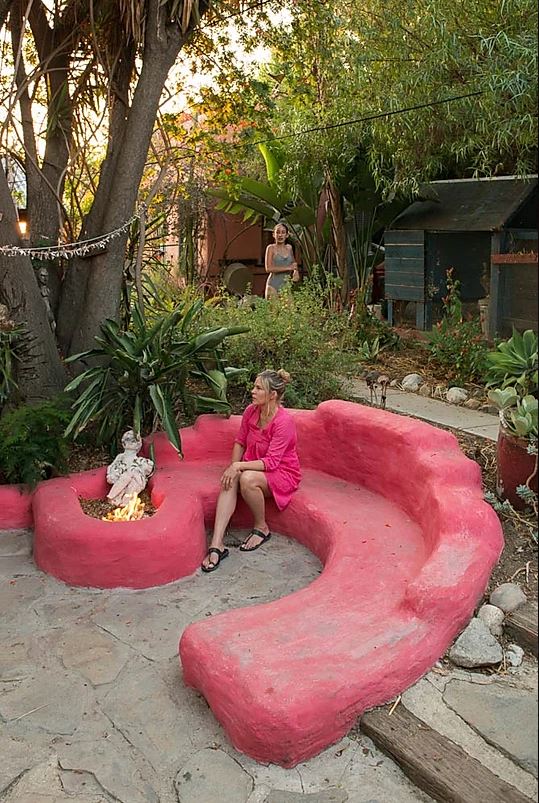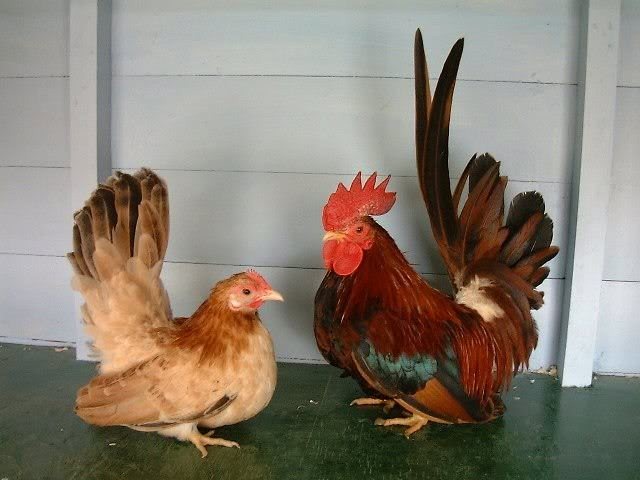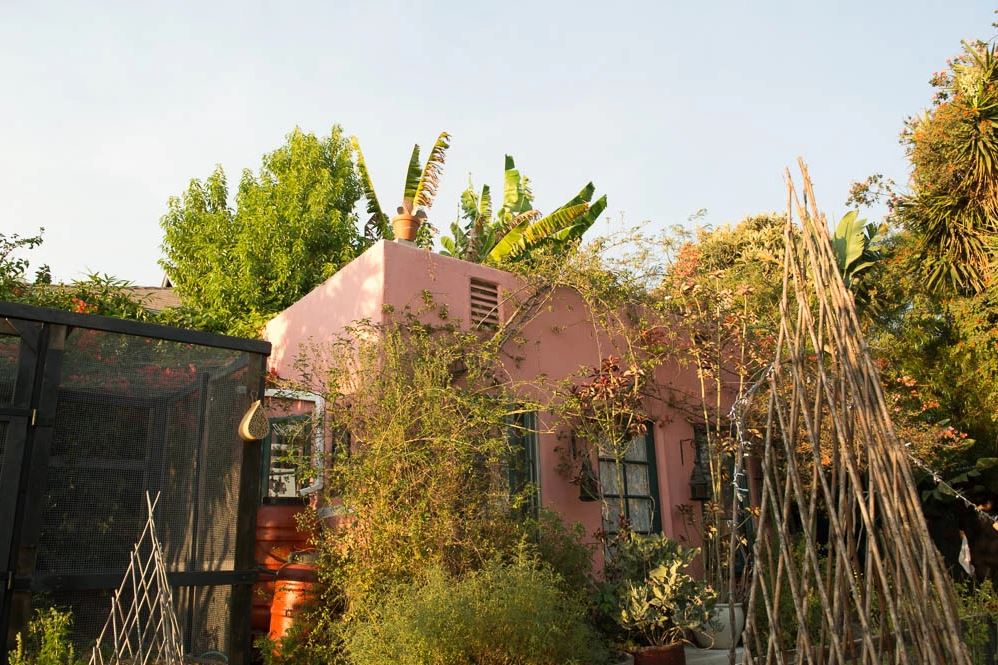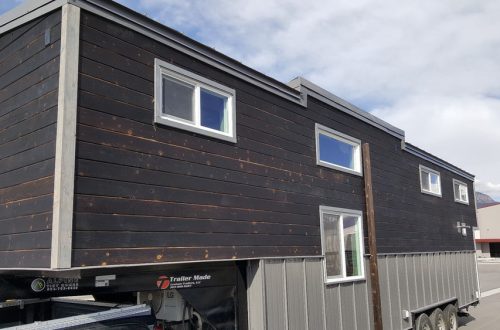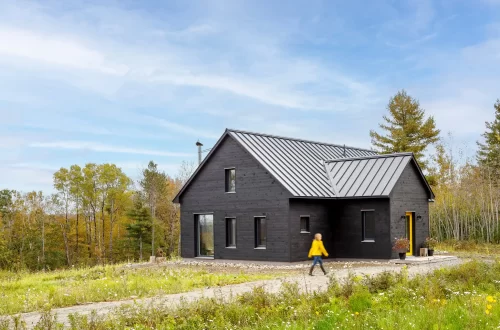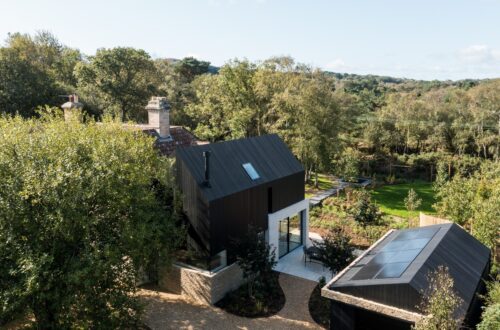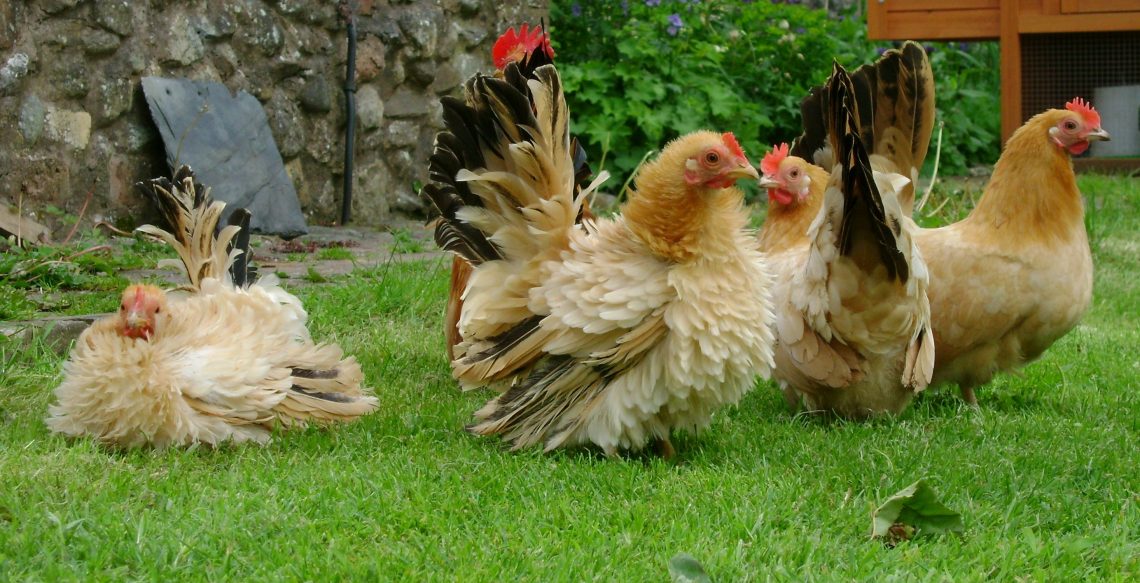
Shou Sugi Ban Fowl Play
When Ilse Ackermann describes herself as a “chicken consultant to the stars,” her tone is tongue-in-cheek. But she has the nondisclosure agreements to prove it.
Her job, which involves 24-hour “fowl consultations” for anxious clients with broody birds, stems from her years living on Skyfarm, the Los Angeles area urban farm she shares with her husband, photographer Meeno Peluce, their two daughters and 25 animals.
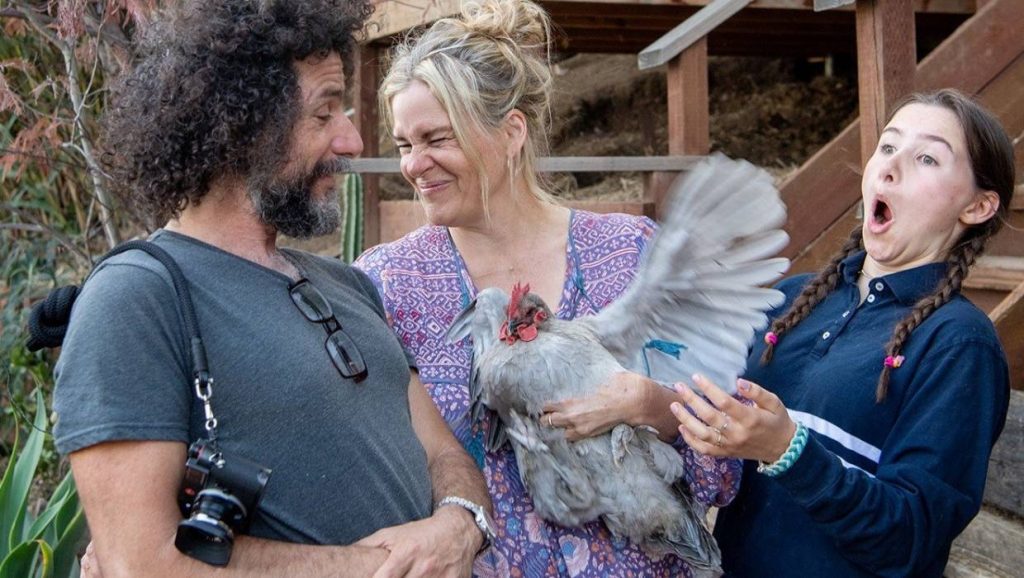
She may design custom coops for Hollywood’s A-list, but her own is more modest, built of inexpensive wood and a galvanized roof from Home Depot that she estimates cost around $1000. By contrast, the coop’s black charred exterior makes a statement in an orchard filled with colorful native plants and edibles.
“I wanted to do it in shou sugi ban style because it is super chic and you don’t have to do anything to it,” Ackermann says of the ancient Japanese technique. “It’s great, because it is bug- and weather-resistant.”
Before assembling the coop, Ackermann burned the wood in her driveway with a roofing torch. She then installed a wood floor – something she does not recommend – and assembled the structure from there.
Outside the coop, she installed a compost bin for collecting chicken manure and a solar-powered radio to deter predators. (The continuous smooth jazz loop has had mixed results.)
“When our first chicken died, we wept, and Meeno was inconsolable,” Ackermann says. “The last time one of our chickens was mauled by a coyote, there was blood everywhere, and we sewed her up with dental floss.” (Desperate, she consulted YouTube). The incident prompted Ackermann to order proper suture kits online. As for the chicken? It survived.


